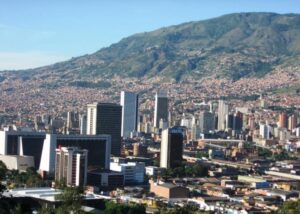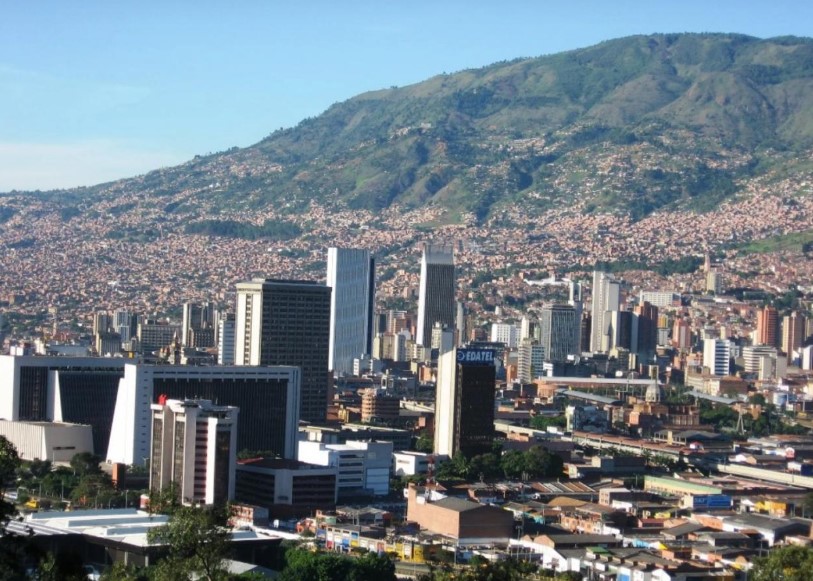Traveling around the world can be one of the most rewarding and exhilarating experiences, offering exposure to different cultures, cuisines, landscapes, and people. However, it also comes with its challenges—especially when it comes to staying connected, safe, and organized. Whether you’re traveling for a few weeks or embracing long-term global travel, these 10 tips will help you stay on top of things, ensuring a smoother, more enjoyable journey.

1. Choose the Right Technology for Connectivity
Staying connected is crucial for global travelers, especially for those working remotely or keeping in touch with family and friends. Having the right tools and strategies to maintain connectivity can make your trip less stressful and more productive.
SIM Cards and eSIMs: Purchasing local SIM cards upon arrival is one of the cheapest ways to access data and make local calls. Alternatively, using an eSIM, which allows you to switch networks without swapping physical cards, can be an even more seamless solution, especially for frequent travelers.
– Portable Wi-Fi Devices: These devices offer reliable internet access on the go and can be shared among several devices. While they might come with a monthly fee, they ensure that you have a steady connection, even in regions where cellular service might be spotty.
– Download Offline Maps: Before setting off to an unfamiliar destination, download offline maps on apps like Google Maps or Maps.me. This way, you can navigate even without internet access, saving you from getting lost in unfamiliar areas.
2. Use Travel Apps to Stay Organized
Keeping track of flights, accommodation bookings, itineraries, and even budgeting can become a hassle when traveling globally. Fortunately, numerous apps are designed to simplify your travel experience:
– TripIt or Google Trips: These apps automatically pull booking confirmations from your email and organize them into a cohesive itinerary. They even notify you of gate changes, cancellations, and delays.
– XE Currency Converter: For those hopping between countries with different currencies, XE allows you to track exchange rates in real time, helping you understand local pricing better and stay within your budget.
– Splitwise: If you’re traveling with friends or family, Splitwise makes it easy to track shared expenses and ensure that everyone pays their fair share.
Having these travel apps on hand will streamline your travel organization, allowing you to focus on enjoying your trip rather than worrying about logistics.
3. Pack Smart for Long-Term Travel
When embarking on a global journey, packing light and efficiently is key. You’ll need to strike a balance between having everything you need and not being bogged down by excessive luggage.
– Invest in Versatile Clothing: Pack clothing that can be mixed and matched easily and is appropriate for various weather conditions. Look for wrinkle-resistant, quick-drying fabrics that are easy to care for on the go.
– Limit Electronics: While it’s tempting to bring every gadget, think about what’s essential. A smartphone, laptop or tablet (if you’re working remotely), and a portable charger are usually sufficient. Leave unnecessary electronics behind to minimize weight and stress.
– Travel Cubes: Travel packing cubes are lifesavers for keeping your luggage organized. They allow you to separate clothing, electronics, and toiletries efficiently, making it easier to find what you need without rummaging through your bag.
4. Stay Safe with Smart Practices
Safety is always a priority when traveling to foreign countries, especially in unfamiliar environments. Use the following strategies to ensure your personal safety and protect your belongings:
– Research Before You Go: Familiarize yourself with the local laws, cultural norms, and potential risks of your destination. This could include learning about common scams or dangerous areas to avoid. Keep a list of emergency contact numbers, including the local embassy and a nearby hospital.
– Use Anti-Theft Gear: Items like anti-theft backpacks or money belts can prevent pickpocketing, which is common in crowded tourist areas. These products come with lockable zippers and hidden compartments, offering extra security for your valuables.
– Stay Aware of Your Surroundings: Whether you’re using public transportation or exploring on foot, stay alert and be mindful of your surroundings. Avoid walking alone in poorly lit areas, and keep your belongings close in crowded places.
5. Health First: Keep a Travel Health Kit and Insurance
Your health should be a top priority when traveling, especially if you’re visiting remote areas or countries with different healthcare systems.
– Travel Insurance: Ensure that you have comprehensive travel insurance that covers not only medical emergencies but also trip cancellations, lost luggage, and other unexpected mishaps. Companies like World Nomads or SafetyWing offer policies tailored to global travelers and digital nomads.
– Travel Health Kit: Pack a basic travel health kit with essentials like pain relievers, anti-diarrhea medication, band-aids, antiseptic wipes, and any prescription medications you may need. If you’re traveling to remote locations, consider bringing items like mosquito repellent, a water purification system, and oral rehydration salts.
– Vaccinations: Before traveling, check whether your destination requires or recommends specific vaccinations. Make sure you’re up to date on necessary vaccines such as Hepatitis A and B, Typhoid, or Yellow Fever.
6. Learn Basic Local Phrases

While English is widely spoken in many popular tourist destinations, learning a few basic phrases in the local language can go a long way. Simple greetings, asking for directions, or showing appreciation in the local tongue can improve your interactions and often results in better service.
Apps like Duolingo or Google Translate can help you learn key phrases quickly. Make an effort to use them in markets, restaurants, and transportation hubs. Locals appreciate travelers who take the time to learn their language, even if it’s just the basics.
7. Stay Flexible with Your Travel Plans
While it’s important to have a general idea of where you’re going, one of the best parts of global travel is being open to spontaneous adventures. Avoid over-planning every detail, and allow room for changes in your itinerary. Unexpected opportunities, like discovering a hidden gem or extending your stay in a city you fall in love with, can lead to some of your best travel experiences.
– Be Prepared for Delays: Whether it’s a missed flight or a sudden change in weather, travel plans can often go awry. Have backup plans for accommodation and transport, and keep an open mind to avoid stress.
– Stay Open-Minded: Embrace the culture and experiences that each new place offers, even if they’re different from what you’re used to. Flexibility is key to enjoying your travels to the fullest.
8. Keep Your Documents Safe
Losing your passport or important travel documents can ruin a trip. Take steps to keep your documents safe and accessible:
– Digital Backups: Scan copies of your passport, visa, driver’s license, and travel insurance, and store them in a secure cloud service like Google Drive or Dropbox. Having digital backups can make it easier to replace lost or stolen documents.
– Secure Storage: Use hotel safes or secure storage in your accommodation to store your passport and other important documents when not in use. Keep only a copy of your passport on hand while exploring, unless you absolutely need the original.
9. Master the Art of Budget Travel
Sticking to a budget can be difficult when traveling globally, but with the right strategies, you can enjoy your trip without overspending.
– Travel Off-Season: Visiting destinations during their off-peak seasons can save you a lot on flights, accommodation, and activities. Research the best times to travel to each country to avoid tourist crowds and enjoy lower prices.
– Public Transportation: Whenever possible, opt for public transportation instead of taxis or rideshares. It’s not only cheaper but also offers a more authentic experience of the local culture.
– Street Food and Local Markets: Save money on dining by enjoying local street food and shopping at markets. Not only is it often cheaper than eating at restaurants, but it’s also an excellent way to experience the local cuisine.
10. Document Your Journey
Finally, one of the most fulfilling aspects of global travel is documenting your adventures. Whether through photography, blogging, or journaling, preserving memories of your experiences allows you to relive them for years to come. It also provides valuable content to share with family, friends, or even a growing online audience.
– Create a Travel Blog or Social Media Account: Share your journey by starting a travel blog or Instagram account. This not only helps you document your travels but also connects you with a community of fellow travelers and provides inspiration for future trips.
– Take Quality Photos: Invest in a decent camera or use your smartphone to capture high-quality photos. Documenting landscapes, people, and local customs creates lasting memories of the places you’ve visited.
Conclusion
Global travel can be a life-changing experience, filled with opportunities to explore new cultures, meet incredible people, and see breathtaking sights. However, to make the most of your journey, it’s essential to stay organized, connected, and safe. With the right preparation and mindset, these tips will help you enjoy every moment of your adventure while minimizing the stress and challenges that can come with traveling the world.
